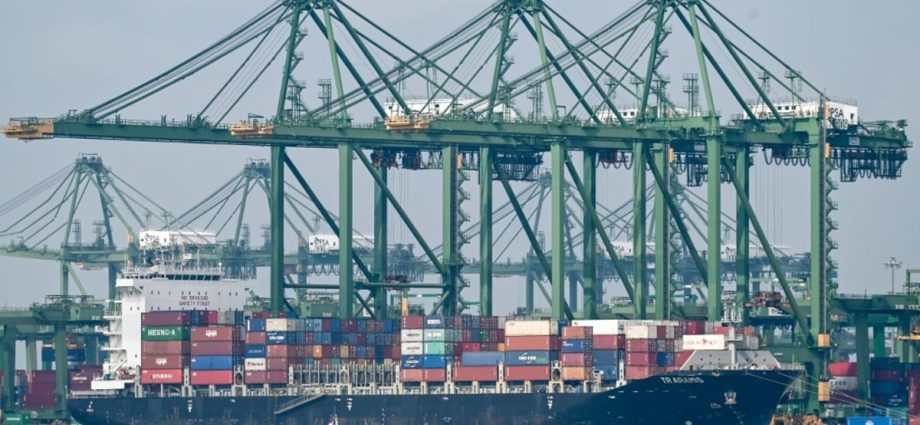
Second, global trade and demand for goods and services have been softening, as accelerated interest rate hikes taken on by major central banks cool economic activity.
The International Monetary Fund, for example, has issued its lowest five-year global growth projection since it started issuing such forecasts in 1990. Global growth is expected to hit 2.8 per cent this year, then hover at about 3 per cent through to 2028.
The “fog around the world economic outlook has thickened” with the recent flare-up of banking turmoil in the United States and Europe, the fund said earlier this month.
As countries push on with tight monetary policies to battle high inflation and vulnerabilities surface in the financial system, global demand will likely stay weak, economists said.
One major risk for Singapore is a sharper-than-expected global slowdown, Capital Economics’ Shivaan Tandon told CNA.
The economist expects the United States and eurozone, two of Singapore’s key demand markets, to fall into recession this year. This means a “very weak” outlook for Singapore’s exports, even with the reopening of China, he added.
So far, the reopening of the world’s second-largest economy has largely driven a rebound in domestic consumption and services.
“China’s demand for intermediate products remains weak, as implied by the worsening exports to China from South Korea, Taiwan and Vietnam,” said Maybank economists Chua Hak Bin and Lee Ju Ye.
They added that exports to China may only pick up in the second half of the year. But if demand from China still fails to pick up by then, Singapore “risks entering into a technical recession”.
Latest data showed that Singapore’s non-oil exports to all but two of its top 10 markets fell. The only two markets to which exports rose in March were the US and South Korea.
As a whole, the volume of shipments to these markets fell last month, with the largest contributors to the decline being China (-14.1 per cent), Taiwan (-30.4 per cent) and Malaysia (-23.1 per cent).
UOB said the data reaffirms its belief that it is premature to call for a reverse in exports.
“We continue to expect weakness in global demand on the back of further monetary policy tightening and worries about economic slowdown in the developed markets,” said senior economist Alvin Liew.

